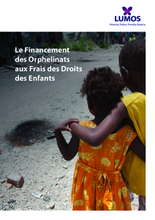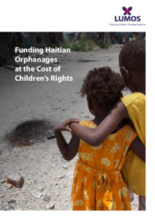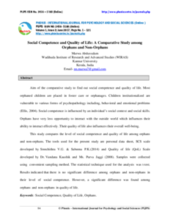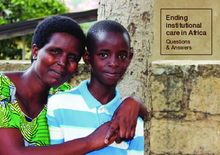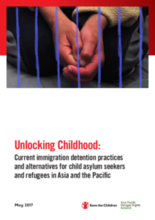Displaying 361 - 370 of 771
The present study investigates the relationships among children's history of maltreatment, attachment patterns, and behavior problems in Japanese institutionalized children.
The Sustainable Tourism Report: East Africa features numerous articles about sustainable and ethical tourism in East Africa, including a piece by Mark Riley and Charlotte Beau titled, "Why Including an Orphanage Trip on a Tour Itinerary is Wrong."
Pour comprendre la raison pour laquelle les orphelinats continuent de se développer en Haïti et la façon dont ils affectent les enfants, Lumos a mené une enquête sur les modes de financement et les ramifications de la vie en orphelinat sur les enfants élevés entre leurs murs.
This article focuses on the assessment of the effects of early institutional care and compares three longitudinal studies from Romania, Greece and Hong Kong/China.
In this report, Lumos investigates the funding patterns of Haitian orphanages as well as the ramifications of orphanage life for the children raised within them to better understand why orphanages continue to flourish in the country.
This presentation provides an overview of violence against children in residential care facilities in Africa.
This study compares the level of social competence and quality of life among orphans and non-orphans.
In this Q&A document, organisations that have joined forces to put an end to institutional care in Africa explain why and what they are doing to ensure all children grow up in the love of a family.
This report examines current policy framework and practices in five countries, namely Malaysia, Thailand, Indonesia, Australia and the Republic of Nauru.
This report by the Mental Disability Advocacy Centre (MDAC) in Hungary contains information collected during visits to Topház between 15 February 2017 and 18 April 2017 by an MDAC team with expertise in law, human rights, disability rights, specia


